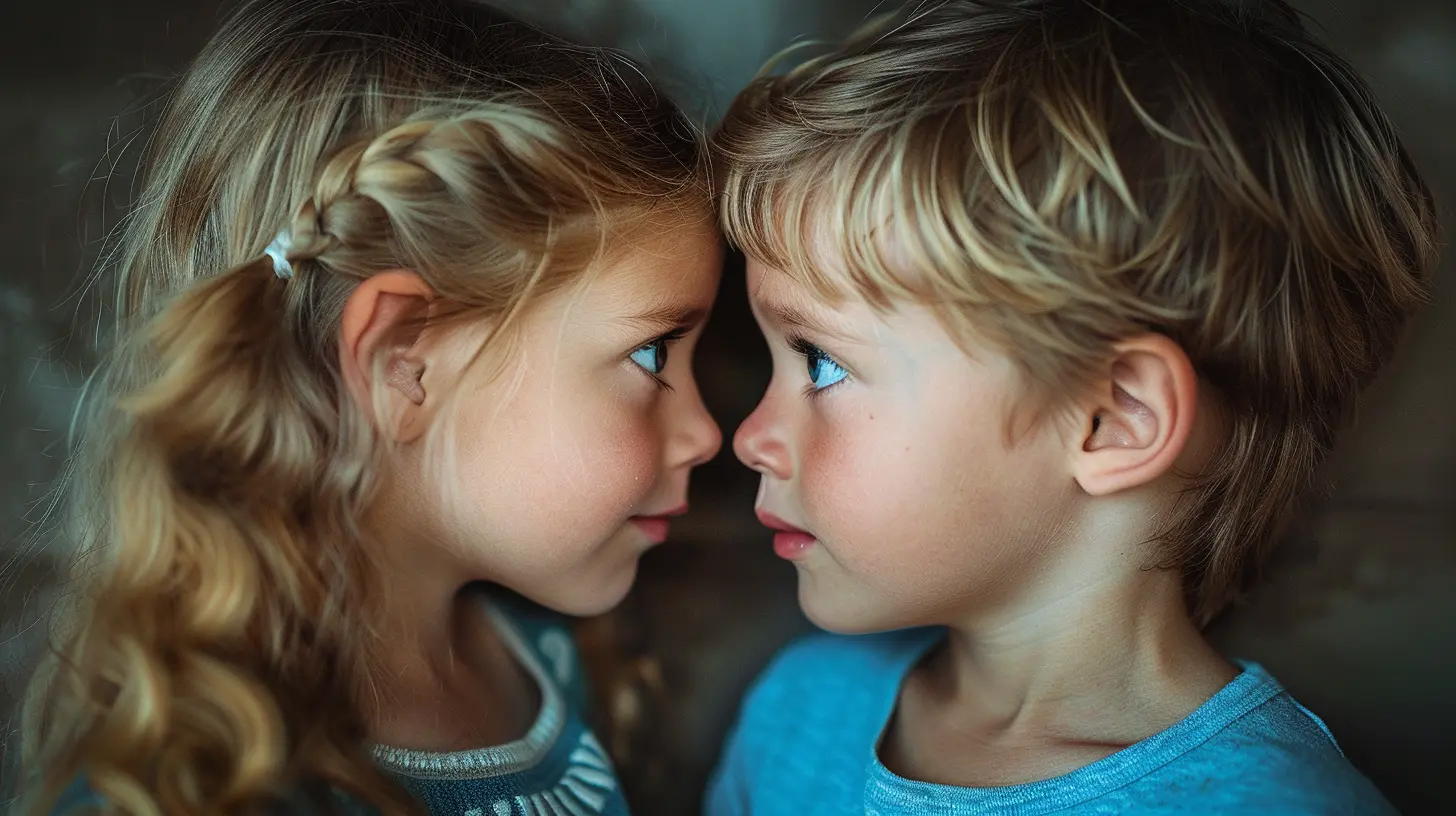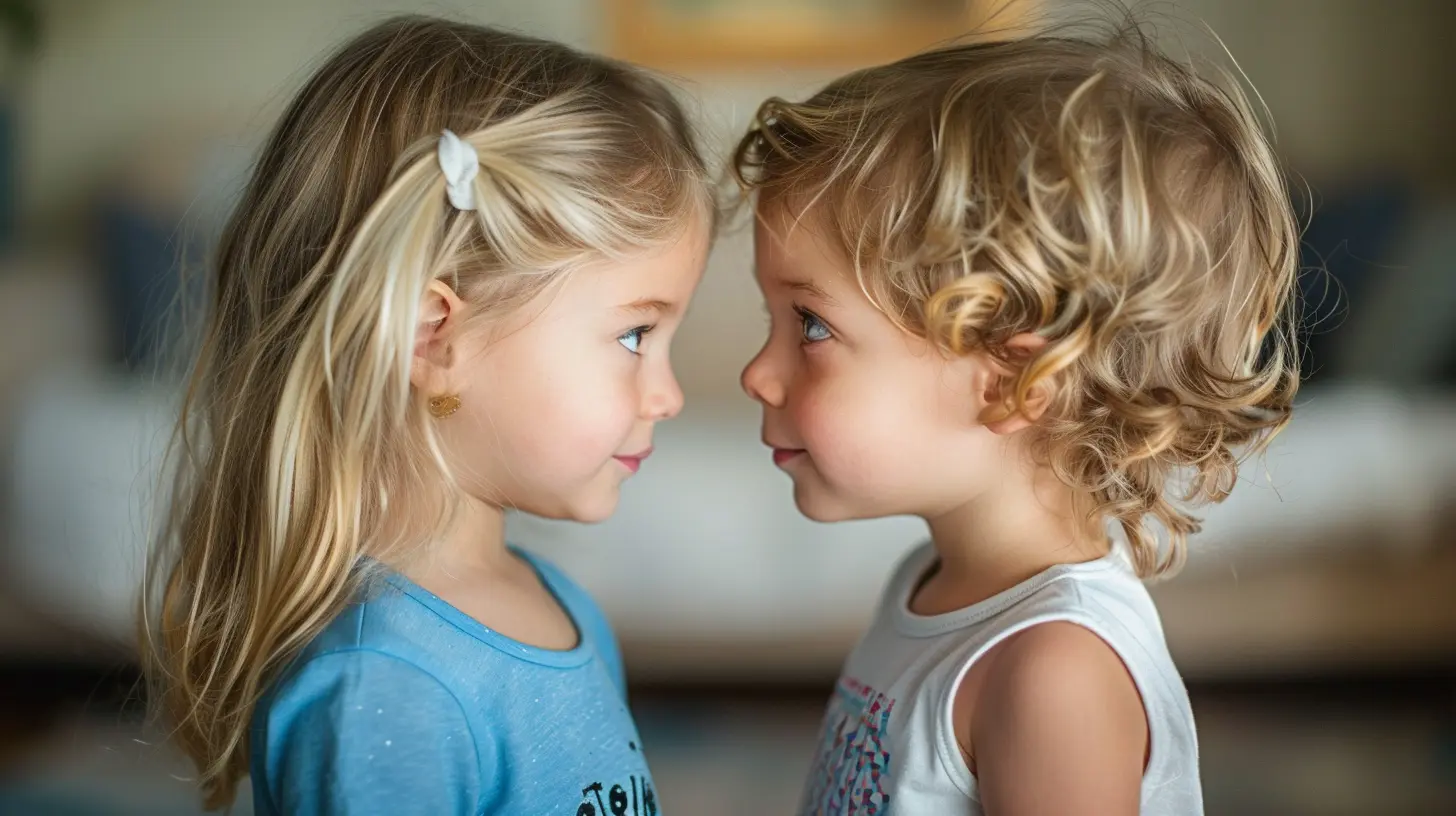The Importance of Connection in Effective Discipline
28 August 2025
Parenting isn’t for the faint of heart, is it? It’s a constant dance between love and limits, between holding on and letting go, between guiding and allowing space to grow. But if there’s one golden thread that weaves it all together—it’s connection. That deep, invisible bond we share with our children. It's not just warm and fuzzy—it’s the very foundation of effective discipline.
Discipline without connection is like shouting into the wind. Sure, they might hear you, but do they truly listen? Let’s peel back the layers of what connection really means in the parenting realm, and why it's the secret sauce to raising emotionally healthy, respectful, and resilient kids.
What Does “Connection” Really Mean?
Let’s face it—when we hear the word discipline, most of us picture time-outs, consequences, or maybe even raised voices. But discipline, at its core, isn’t about punishment. It’s about teaching.And connection? Oh, that’s the sweet glue that holds the teaching together.
Connection means your child feels safe with you. It means they trust that you’re on their side, even when things get tough. It’s the tightrope between structure and empathy. It’s eye contact in a noisy room. It’s the hug after a meltdown. It’s saying “I’m here” without a single word.
Why Is Connection So Crucial for Discipline?
Let’s hit the heart of it—why does connection matter so much when it comes to discipline?Because without connection, discipline falls flat. Kids don’t follow rules out of fear for long. They follow guidance from those they respect and feel respected by.
Think of it like this: You wouldn’t take advice from someone who constantly criticizes you, ignores your needs, and doesn’t understand where you’re coming from, right?
Kids are no different.
1. Connection Builds Trust
Kids are wired to push boundaries—it’s how they learn. But when you’re connected, they trust that your boundaries come from love, not control.When a child knows that your “no” comes from a place of care, it lands differently.
It’s the difference between “Do it because I said so,” and “I understand you’re upset, but this isn’t safe. I won’t let you get hurt.”
Trust grows when kids feel seen, heard, and valued—even in their worst moments.
2. Connection Encourages Cooperation
Ever notice how much easier it is to guide your child when you've spent time just hanging out? Whether it's a board game, five minutes of snuggles, or that silly dance in the kitchen—those moments are magical.Why?
Because when kids feel emotionally full, they’re more open to guidance. Cooperation comes naturally when the relationship bank account is overflowing.
3. Connection Regulates Emotions
Discipline gets messy when emotions run high. Tantrums, backtalk, slammed doors—you name it.But kids don’t learn well in the middle of an emotional storm.
Connection soothes the nervous system. It says, “You’re safe. You’re not alone.” That safety helps children calm down and opens the door for real learning.
The Brain Science Behind Connection and Discipline
Let’s geek out for a moment—because the science totally backs it up.When children feel disconnected, their brains can flip into fight-or-flight mode. That’s survival territory. Logical thinking, empathy, and self-control? Out the window.
But when they feel safe and connected? Their prefrontal cortex (aka the thinking brain) kicks in. That's when they can reflect, reason, and regulate.
In other words—discipline only works when the brain is calm. Connection is what brings it back online.
Connection Isn’t Permissiveness
Now, hold up a second. Let’s bust a myth.Connected parenting isn't about letting kids run the show. It’s not about giving in or ignoring bad behavior.
It’s about being the calm captain of the ship. You’re still in charge—but you lead with empathy, not fear. You set limits lovingly. You hold firm without shaming or yelling.
The magic lies in how you say things, not just what you say.
“I won’t let you hit” with a calm tone and warm eyes lands differently than “Stop it right now or else!”
Same boundary. Very different result.
Practical Ways to Build Connection in Daily Life
Okay, let’s bring this down to earth. What does connection look like on a regular Tuesday with a toddler melting down in aisle three of the grocery store?Here are some practical, heart-centered ways to build and maintain that all-important bond:
1. One-on-One Time, Every Day
Call it Special Time, Mommy-and-Me Moments, or Just Us Minutes—whatever works for you. But carve out intentional, uninterrupted time with each child. Even 10-15 minutes a day can work wonders.No phones, no distractions. Just presence.
It says: “You matter to me. I love being with you.”
2. Empathize Before You Correct
Before you jump in with a lecture or consequence, try empathy first.“You really wanted that toy. It’s so hard to wait.”
When kids feel understood, they soften. They become more receptive. And they begin to internalize self-control because they’re not on the defensive.
3. Rituals of Connection
Bedtime snuggles, silly handshakes, shared morning routines—rituals create predictability. Predictability equals safety. And safety builds—you guessed it—connection.4. Use Eye Level and Gentle Touch
Eye contact and physical closeness are grounding. When your child is upset, get down to their level. Offer a gentle touch—a hand on the shoulder, a rub on the back.It’s the nonverbal way to say: “I’m here. I’ve got you.”
5. Repair After Ruptures
You’re going to lose your cool. We all do. But what happens after matters most.Apologize. Take responsibility. Show them what repair looks like.
“I was feeling overwhelmed and I yelled at you. That wasn’t okay. You didn’t deserve that. I’m sorry.”
This teaches accountability—and that your connection can weather the storms.
Common Discipline Mistakes That Weaken Connection
Even with the best intentions, we all fall into traps that chip away at connection. The key is noticing them, not beating ourselves up.Here are a few common pitfalls:
1. Punishing Instead of Teaching
Punishments tend to shame kids instead of guiding them. They focus on making a child feel bad rather than helping them understand the impact of their actions.Instead, try natural consequences and conversations.
2. Using Threats and Bribes
“If you don’t behave, no dessert!”Sure, it might work short-term. But it teaches compliance, not internal motivation.
Let’s aim to raise thinkers, not just rule-followers.
3. Ignoring Emotions
Ever said “Stop crying, it’s not a big deal”? We all have.But minimizing feelings creates disconnection. It tells kids they can’t trust their inner world.
Instead, validate their emotions—even if the behavior needs correcting.
The Long-Term Impact of Connection-Based Discipline
Let’s zoom out for a second.What kind of adults do we want our kids to become?
Confident? Kind? Emotionally intelligent? Able to set boundaries and respect others?
Those traits don’t come from harsh discipline or fear-based tactics.
They come from being modeled. From feeling connected and respected from the start.
Connected discipline teaches our kids that:
- Mistakes are okay—growth is part of life.
- Emotions aren’t dangerous—they’re guideposts.
- Boundaries can be loving—not scary.
- Respect goes both ways.
And perhaps most importantly, they learn that love doesn’t depend on their behavior. That they are worthy, even when they mess up.
That’s a powerful legacy to leave behind.
Final Thoughts: Discipline Rooted in Relationship
At the end of the day, discipline isn’t about control—it’s about guidance. And guidance flows best from the well of connection.So next time your child melts down or pushes a limit, remember—it’s not a power struggle. It’s a cry for connection.
Breathe. Pause. Kneel down. Open your arms before you open your mouth.
Because when connection is strong, discipline becomes less about fixing and more about growing—together.
And isn’t that what parenting is really all about?
all images in this post were generated using AI tools
Category:
Positive DisciplineAuthor:

Karen Hurst
Discussion
rate this article
2 comments
Zane McKenzie
Connection over correction, always!
December 28, 2025 at 3:24 AM

Karen Hurst
Absolutely! Building connections fosters trust and understanding, making discipline more effective and compassionate.
Daphne White
Thank you for this insightful article! Connection truly is essential for effective parenting and discipline.
August 30, 2025 at 2:45 PM

Karen Hurst
Thank you for your kind words! I'm glad you found it insightful. Connection really does make a difference in parenting and discipline.


